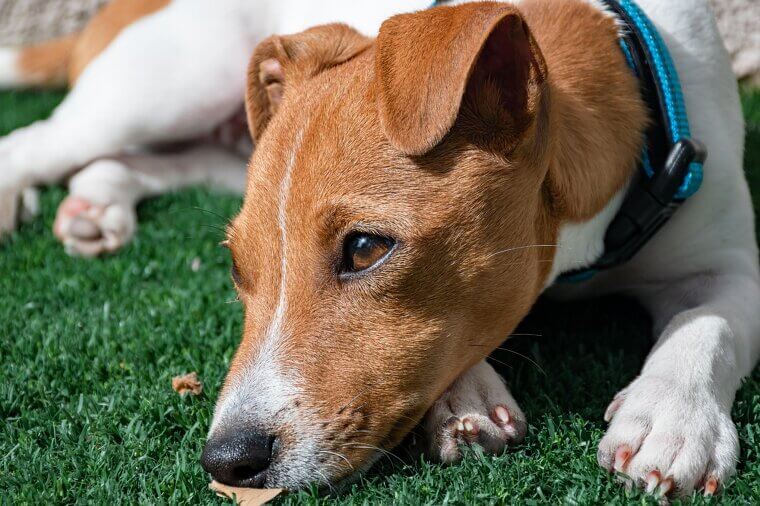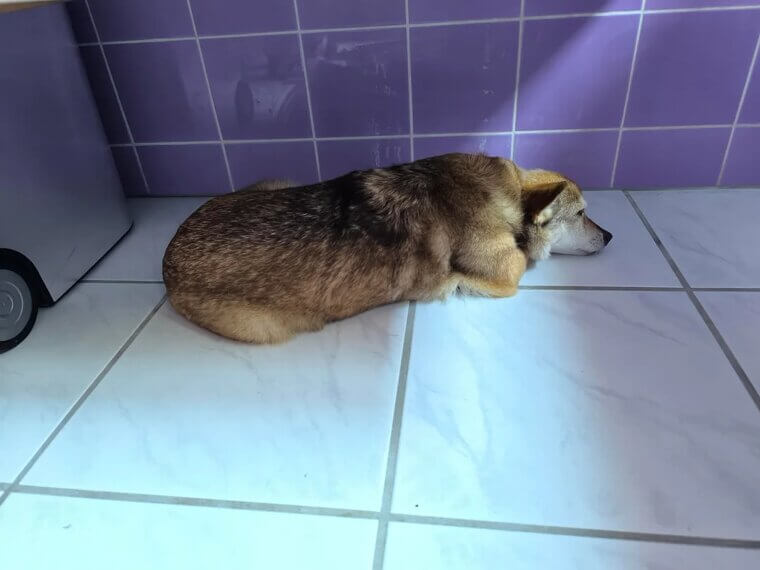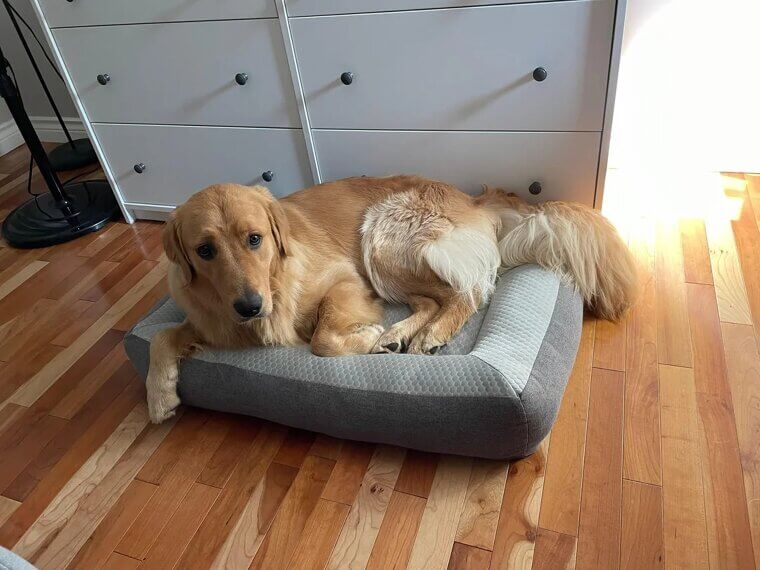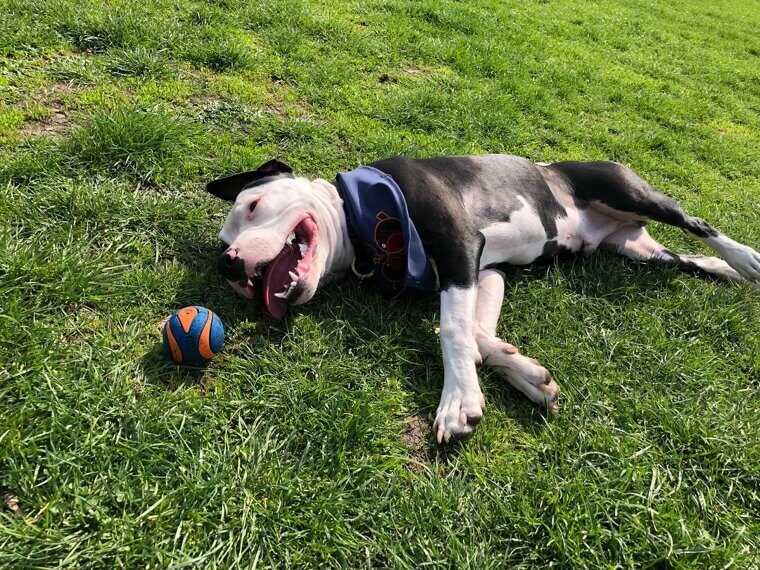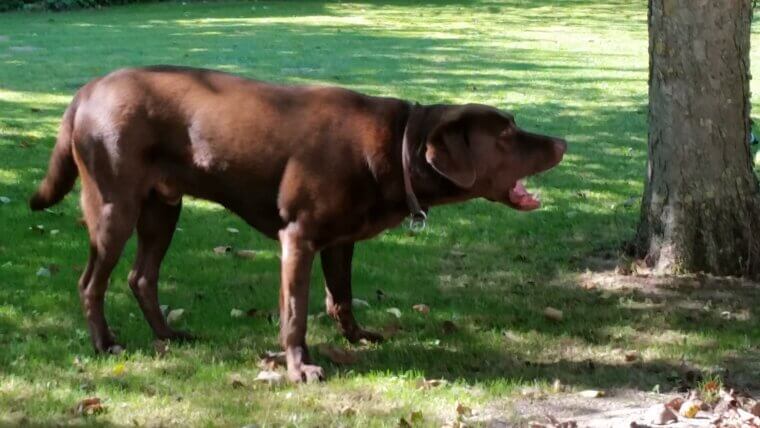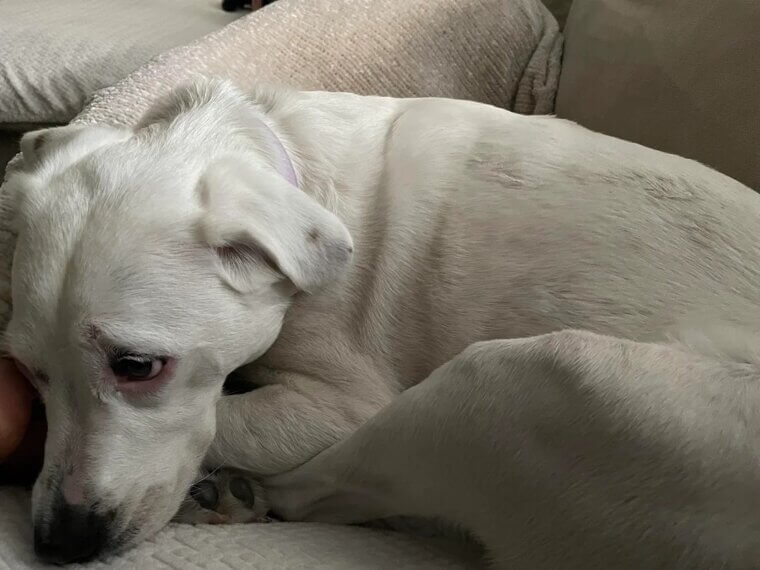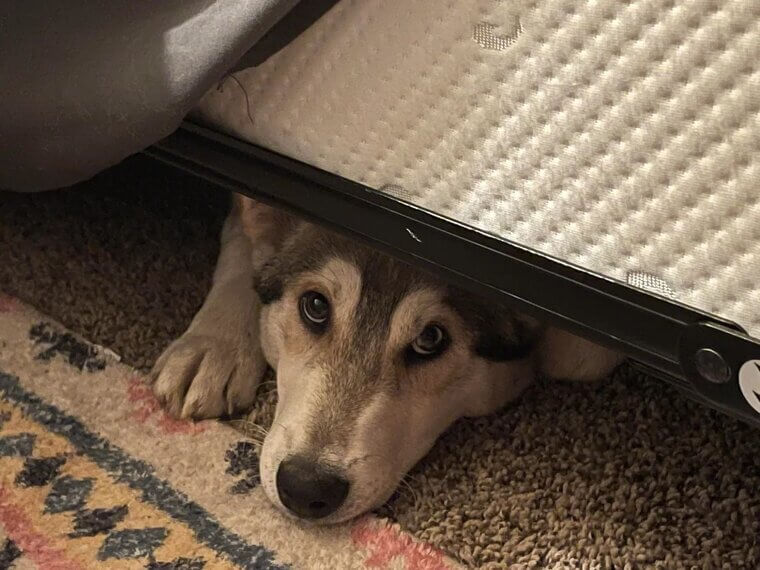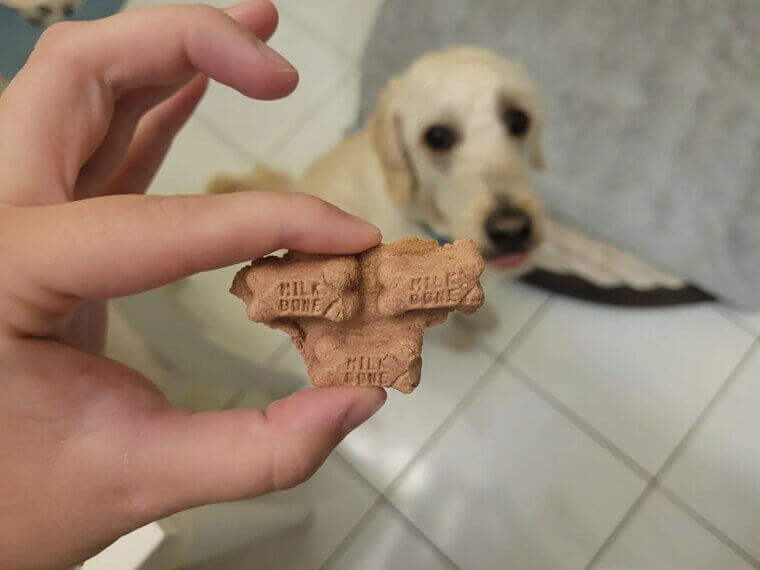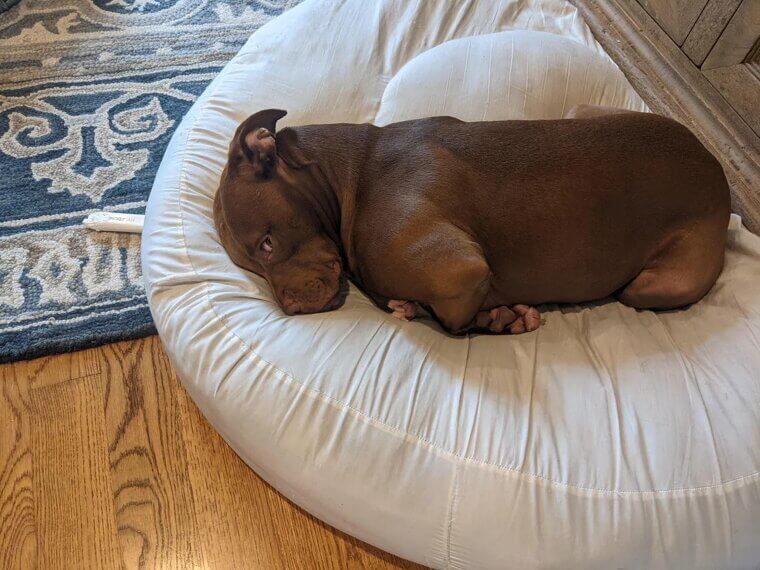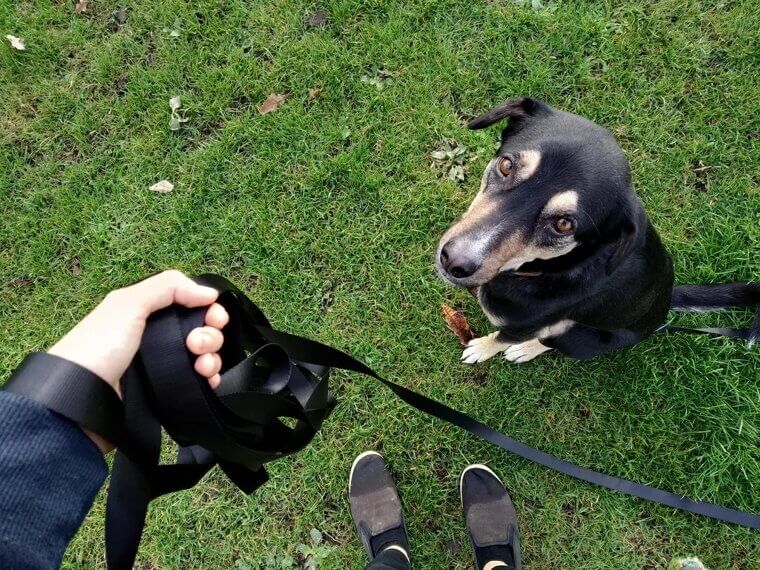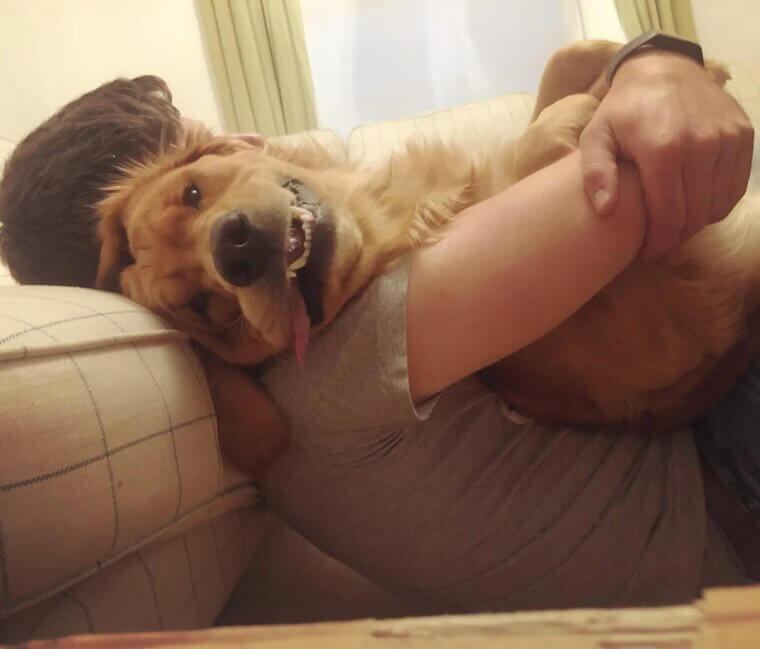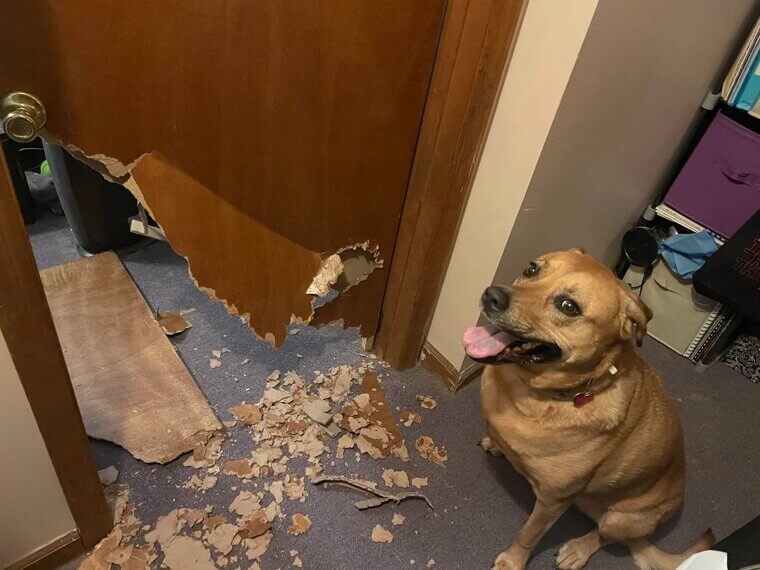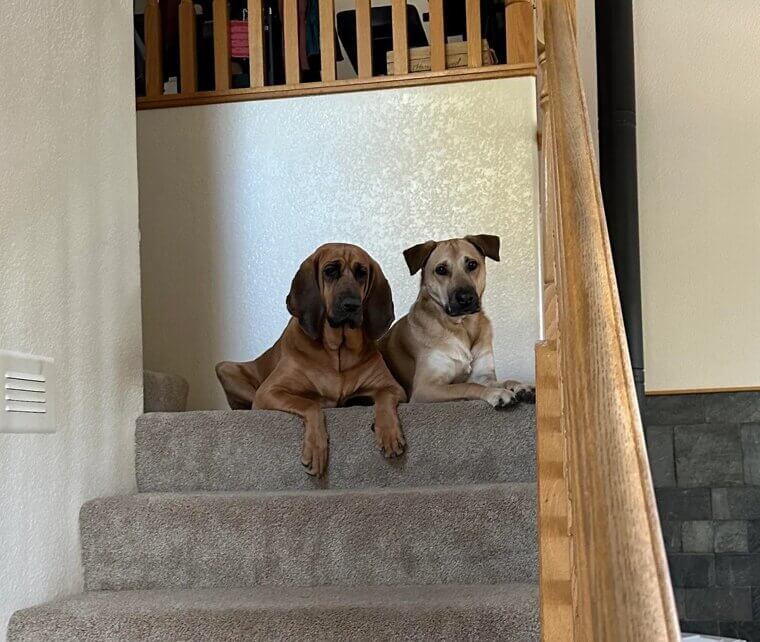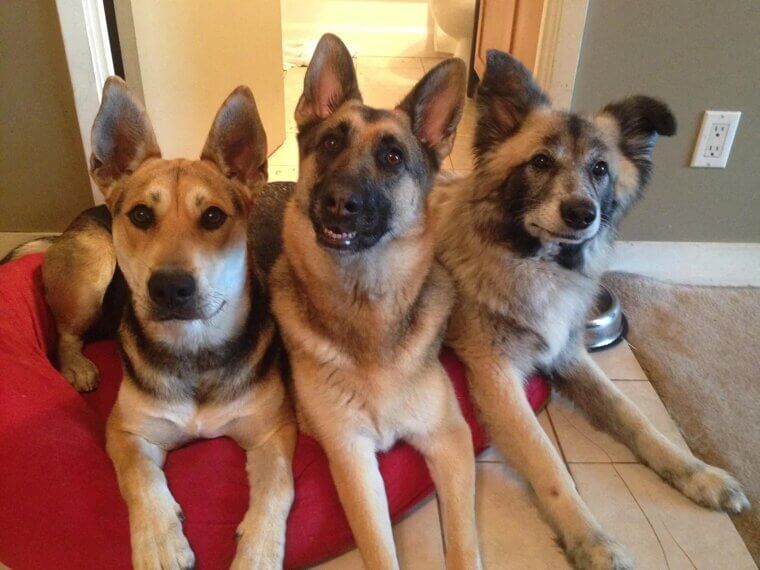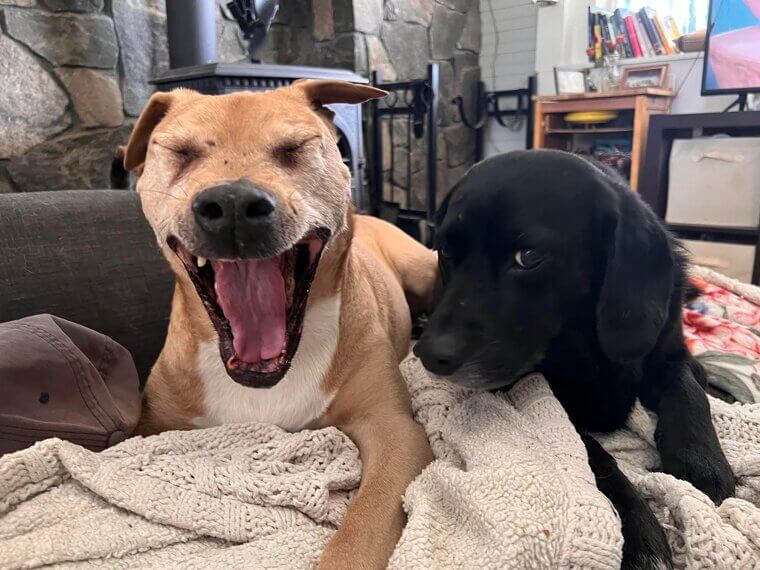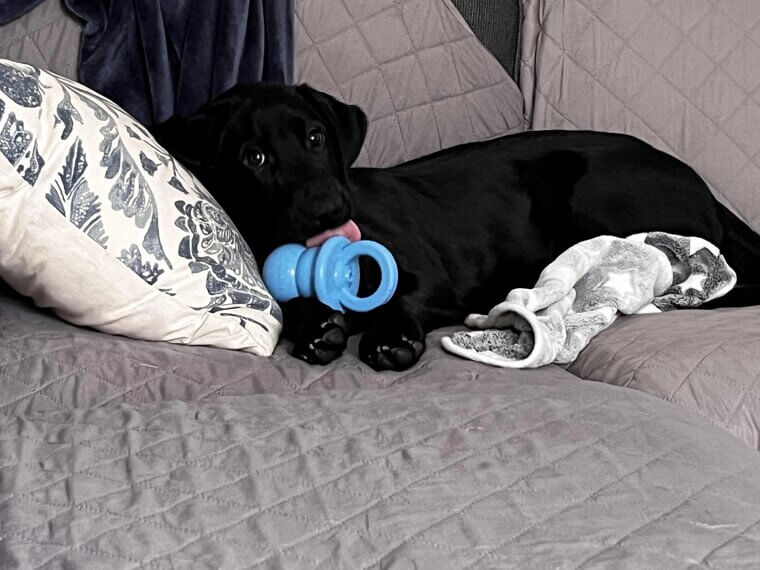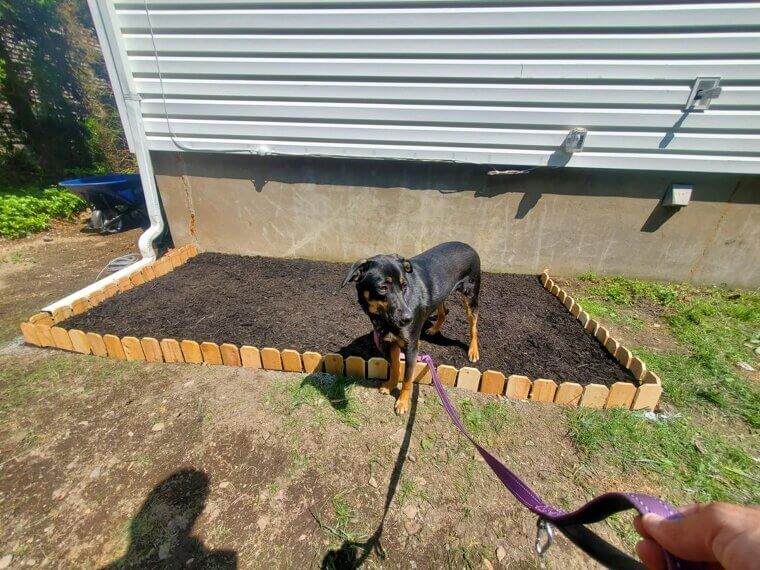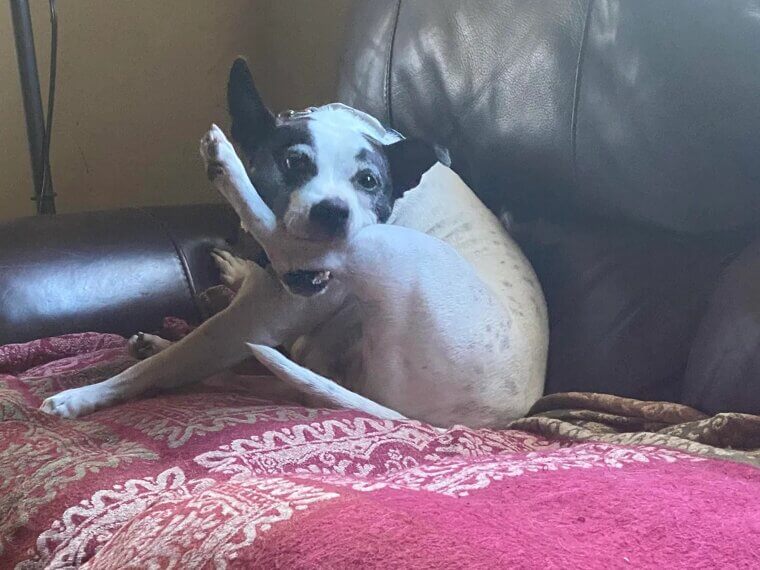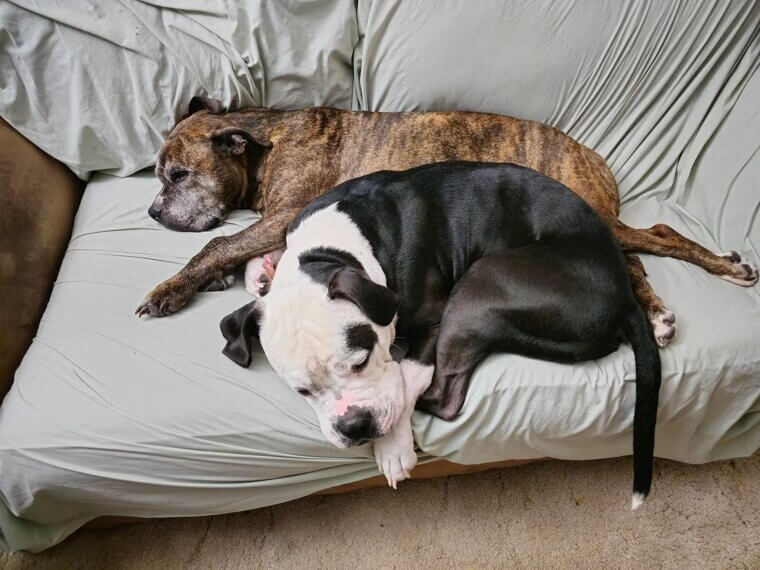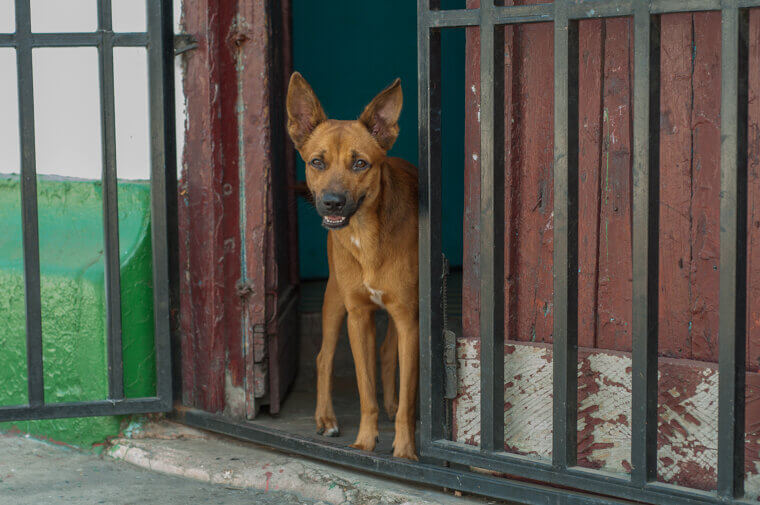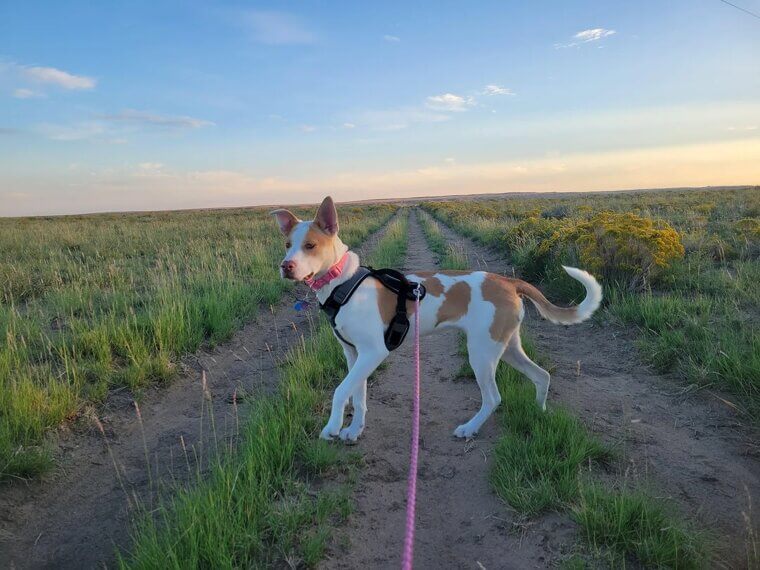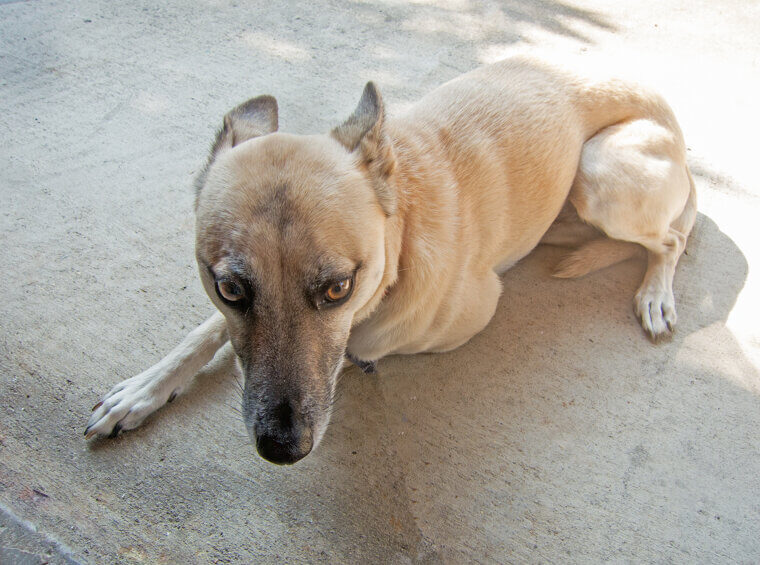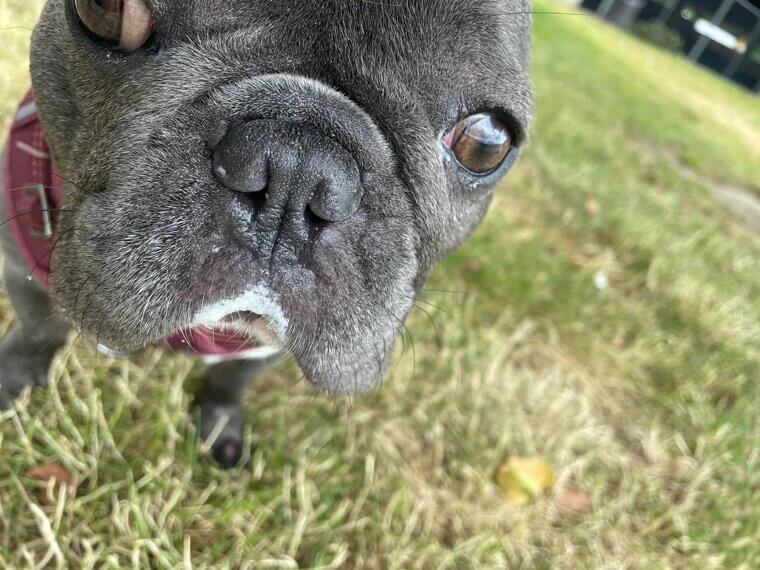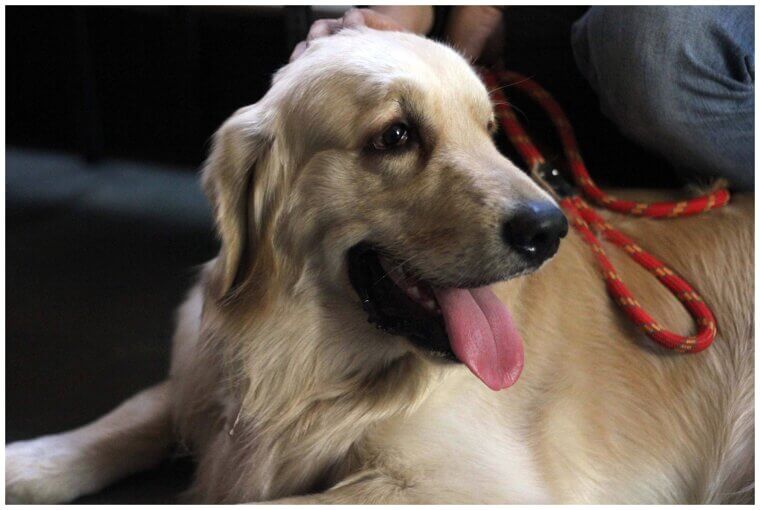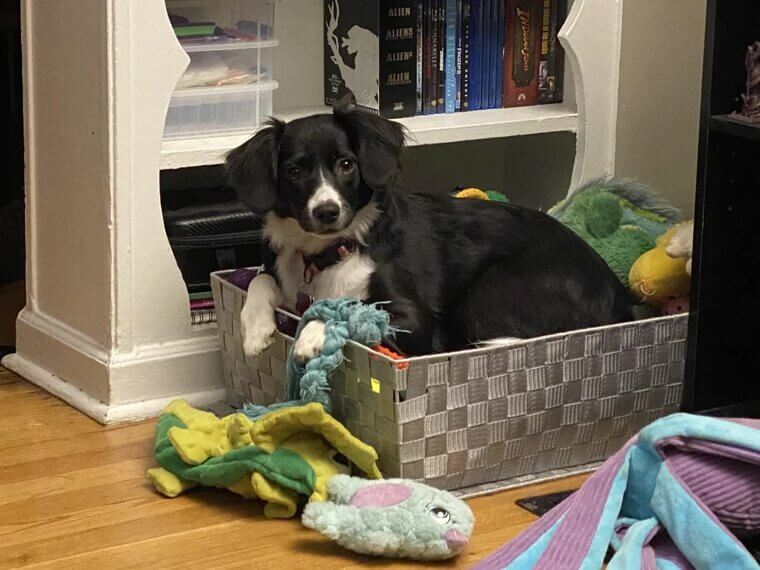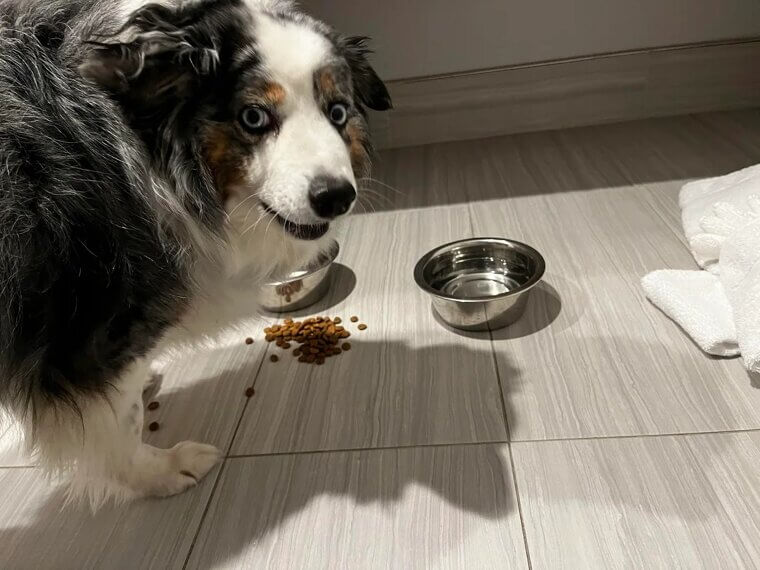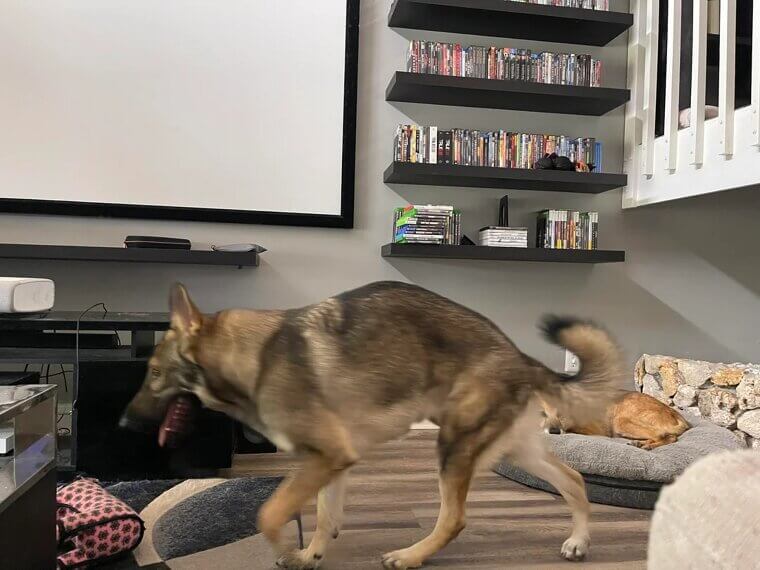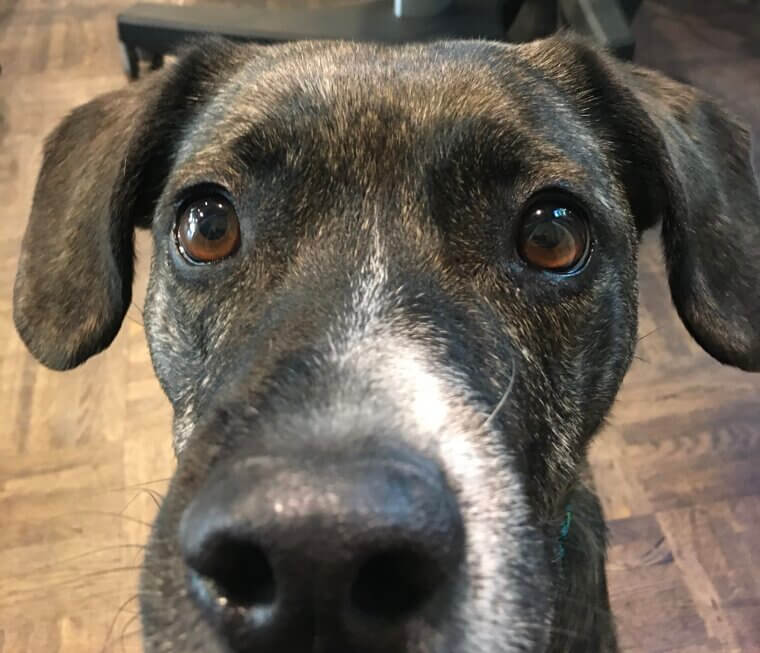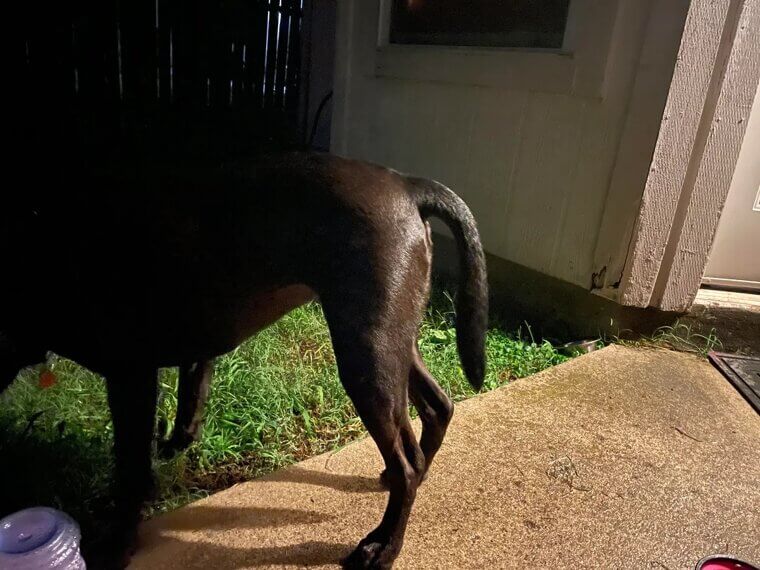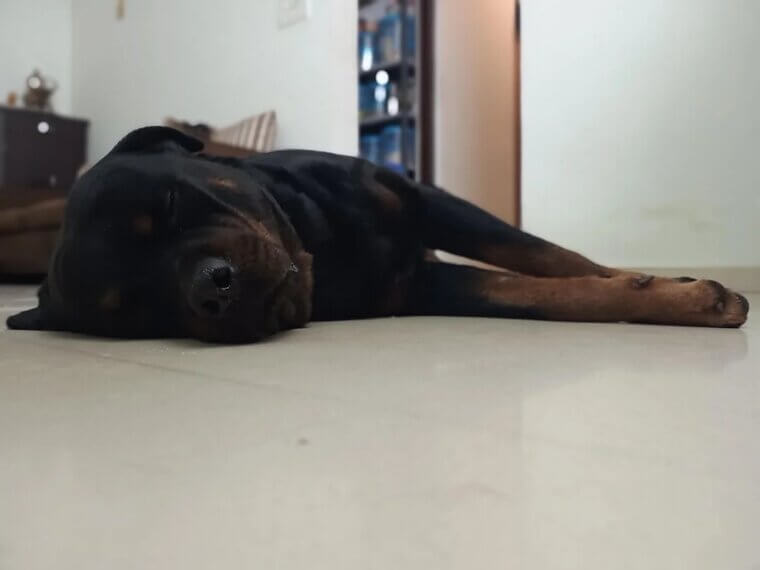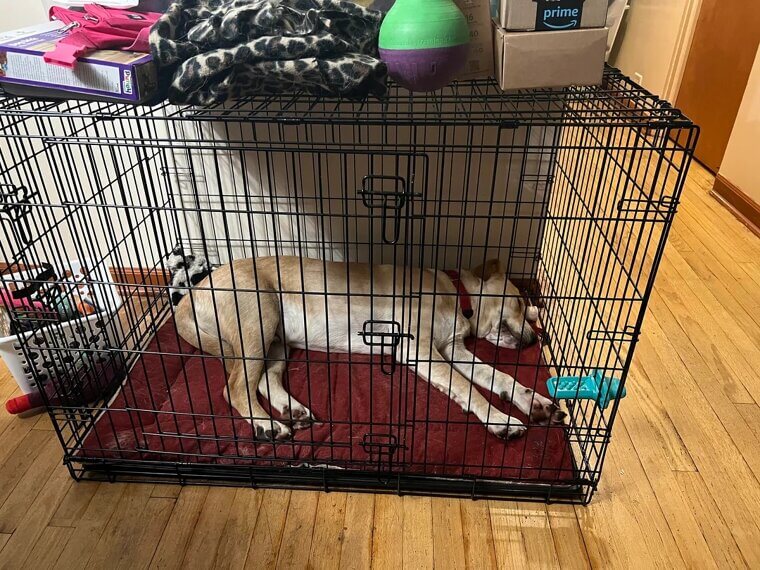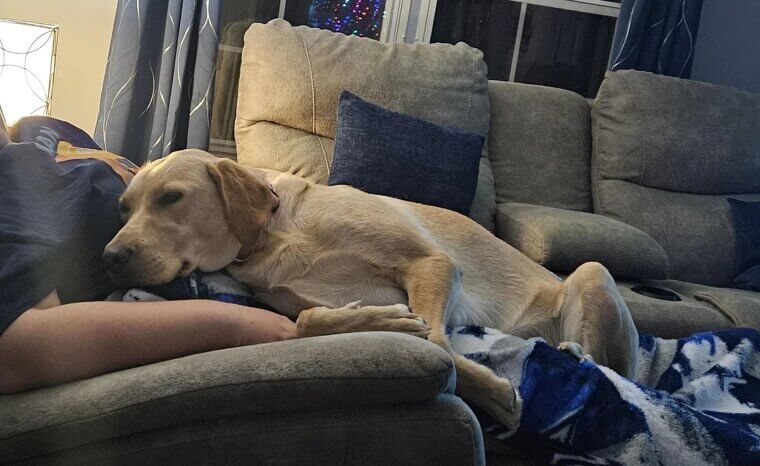They Avoid Eye Contact
Dogs are very similar to humans, so they use eye contact to signal trust and connection. If your dog is avoiding eye contact, it may be a sign that they are wary of you. Try to earn their trust by creating a calm presence when they look at you, and definitely don’t just stare!
They Move Away When You Approach
They're not called “Man's Best Friends” for no reason! But if your dog moves away when you approach, they may not have developed a close bond with you yet. To fix this, take things slow, avoid sudden movements, and let them initiate contact.
They Won't Sleep Near You
It's in our bodies’ natural chemistry to fall asleep easily around those we love, and it's no different for dogs. If your dog won't sleep near you, create a soft, cozy environment where they can feel safe and gradually establish physical and emotional closeness.
They Don't Play
Playfulness is a sign of joy and connection, so a dog who doesn't play with you likely lacks those emotions. Luckily, this is fairly easy to fix because it's all about training your dog through short, fun sessions to enjoy playtime and associate it with you.
They Growl at You
Growling isn't just aggression- it's a form of communication. A dog that growls at its owner probably feels threatened, not loved, and it's vital that you recognize its trigger and work with a therapist to encourage mutually kind and respectful behavior.
They Don't Respond to Your Voice
Just like humans, dogs are happy and responsive when they hear the people that they love. If your dog doesn't respond well to your voice, try softening your tone, using simpler commands, and rewarding them when they respond. And remember: don't shout!
They Flatten Their Ears
Flat ears might look cute, but they're a sign that the dog is scared or submitting to you. This isn't what you want in a long-term, loving relationship, so you must calmly and gently build trust and use positive reinforcement to help them come out of their shell.
They Hide From You
We're not talking about a good, old-fashioned game of Hide and Seek. If your dog actively hides away from you, they may not feel emotionally safe around you. Help them find a safe space in your home, don't invade it, and allow interactions to happen naturally.
They Refuse to Take Treats
Did you know that dogs generally won't take treats from people they distrust? A dog that turns down treats might also be stressed or fearful. You should reintroduce treats during quiet moments when you can connect with your dog and create positive associations.
They're Stiff When Touched
Stiffness is not a sign of love or affection; it’s a sign that your dog is uncomfortable or scared. To earn their love, you must first earn their trust, so avoid over-handling them. Focus on soft touches and allow them to see your movements.
They Prefer to Be Alone
We all need some time alone, but if you notice your dog constantly withdrawing, they may also be withdrawing emotionally. In this situation, you need to carefully balance giving them space and engaging in calming activities, like brushing or playing, to rekindle that connection.
They Ignore Commands
Unlike most people, dogs enjoy receiving commands because they’re pack animals at heart, so it’s a big deal if your dog doesn’t respect your leadership. To fix this, you should immediately revisit their training, use positive reinforcement techniques, and rebuild rapport.
They Prefer Other People
Dogs always have a favorite human, but they still love all of their owners. If your dog is avoiding you, it's possible that you're doing something that upsets or unsettles them. To repair that bond, observe how others interact with your dog and mirror those calm, positive behaviors.
They're Destructive
Destructive behavior is something you need to nip in the bud as soon as possible, even if it’s just chewing furniture. Your dog might be misbehaving because they’re anxious or emotionally frustrated, so you need to provide consistent routines, positive outlets, and toys.
They Don't Come to You
There’s nothing better than the pitter-patter of little paws running to greet you, but what if your dog doesn’t come? It could be due to past trauma, so try to be patient and understanding with your dog, and don’t punish them for hesitating.
They Live With Other Pets
If your dog acts strangely around your other pets, it could be that they’re feeling jealous or underappreciated, which impacts their feelings of love for you. Try to give each animal equal attention and personalize your approach to their needs.
They Constantly Yawn
Frequent yawning isn’t always a sign of tiredness - it’s also a stress signal. If it continues to happen around you, your dog may be feeling anxious or unsupported. It’s important to reduce pressure in your interactions and foster a calm, mutually respectful relationship with your pet.
They Show “Whale Eyes”
“Dog whale eye” is a body language signal that indicates stress or anxiety. If your dog is constantly showing the whites of their eyes, you might be overstimulating or discomforting them. It’s best to back off, lower your energy, and give them control over the interaction.
They Have Accidents
Every dog has an accident once in a while, but it shouldn’t happen often. Medical issues ruled out, if a house-trained dog is having accidents, they might not feel completely safe. Evaluate environmental stressors, establish new routines, and remain patient at all times.
They Attempt to Bite
Biting is another big problem that you shouldn’t ignore, and there’s always a cause. It’s often a last-resort sign of extreme fear or distrust and should be dealt with on the spot. Immediately step back, defuse the situation, and then consult a behaviorist to address the root cause.
They Don't Cuddle
Not every dog breed is as cuddly as retrievers or labradors, but a total avoidance suggests that they don’t feel that strong emotional connection with you yet. To establish it, respect their boundaries, remain open and welcoming, and let them come to you for cuddles.
They Mark Their Territory
We all like our own space, but if your dog is defending or urinating on things, they might be trying to mark their territory away from you. They might also feel unsettled, so try to maintain a stress-free home, keep everything clean, and focus on bonding and building confidence.
They're Reluctant to Go For Walks
We all know that dogs love walks, especially with their favorite humans! A walk-resistant dog might be struggling with going outside or spending time with you, so you need to make walks an enjoyable, rewarding experience that you can share.
They Flinch
Flinching is a trauma response, so your dog may have had past experiences that make them wary of people. This isn’t your fault, but by being gentle and cautious, you’ll show your dog that you’re a safe presence, and the love will develop from there.
They Avoid Sniffing You
Dogs use all their senses to get to know people, so if your dog avoids sniffing you, they might not feel safe enough to explore a relationship. It’s best to let them take the lead and approach at their own pace, instead of trying to force a connection too soon.
They Lick Their Lips Excessively
Is it chapped lips, or does your dog not feel comfortable around you? Excessive lip-licking indicates that you might be accidentally stressing out your dog, but you can fix that by trying to ease tension around them and remaining calm and positive at all times.
They Hide Toys
Dogs often share things with the people they love, so hiding toys may indicate resource guarding or a lack of trust. Avoid taking toys without reason, and engage in productive playtime instead. Teach sharing through trade games, and your dog will be more open with you.
They Won't Eat Near You
Make no mistake: a dog that wolfs down their food feels comfortable in your presence. Eating is a vulnerable act that they won’t do if they feel unsafe, so you must make mealtimes a peaceful and enjoyable experience. Before you know it, you’ll be companions for life.
They Pace A Lot
People pace when they’re stressed, and animals are the same. When your dog loves you, they’ll relax around you and let their guard down. To stop your dog from anxiously pacing, keep your home comfortable and mentally stimulate them to redirect that nervous energy.
They Watch Your Every Move
Even guard dogs know when to chill out, so if your dog is constantly monitoring your movements, it may signal hypervigilance, not love. They might be uncertain about your next move and unable to relax, so try to act predictably and keep interactions low-pressure.
They Stop Wagging Their Tail
Tail-wagging is a sure sign that your dog is happy and loving, so if it suddenly stops, they might be withdrawing emotionally. Watch your dog’s body language cues, and ensure you give them plenty of positive attention, including treats, playtime, and shared downtime.
They Ignore Their “Guard” Role
Even if your dog is the laziest guard dog around, they will still have a natural alertness and a desire to protect you. If that changes, your bond may be weak. The best solution is to make your dog feel important and involved to restore that close connection.
They Whine Around You
Whining is very different from barking because it’s a sign of anxiety when something or someone is nearby that is causing discomfort. Are you often loud, inconsistent, or unpredictable? If so, you need to structure time with your dog and ensure they feel safe around you.
They Don't Engage in Training
Let’s be honest, dogs love everything, but especially training. It gives them something fun and rewarding to focus on, so long as your dog is invested in your relationship. Start with small tasks, then build up from there, and always celebrate with your dog.
They Resist Being Picked Up
Dogs don’t always like being handled, but if your dog growls, squirms, or hides when you try to pick them up, you might be making them uncomfortable. Always respect their space and avoid forcing contact to build up positive handling and physical affection.

